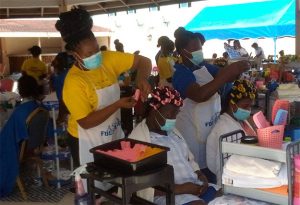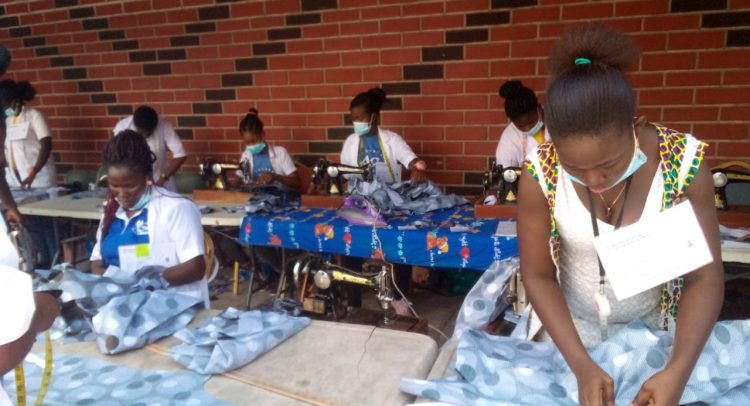The GNPC Foundation has supported about 435 artisans from both Western and Western North regions to write this year’s National Vocational Training Institute (NVTI) certificate examination under its Skilled Artisans Project (SAP).
The project seeks to provide technical, material, and financial resources to equip less-privileged Ghanaian youth in various vocations.
It is also aimed at making a positive impact on the socio-economic lives of the beneficiaries.
Yaw Sarpong Ampomah Media and Communication Officer at the GNPC Foundation, disclosed this in an interview with journalists.
He stressed that the GNPC Foundation was making sure that all Ghanaians benefitted from the oil revenue by embarking on numerous initiatives to improve the people’s living standards.
He said GNPC initiated the Skill Artisans Project to support artisans across the country.
“We believe that the revenue generated from the oil and gas activities in the country should benefit all Ghanaians, and one of the ways is to invest and support artisans across Ghana”, he added.
He indicated that currently, the foundation is supporting over 2,000 artisans across the country and that 435 of them are in the Western and Western North regions.
He mentioned that there are four stages under the programme. The first was to register the artisans and took them through refresher courses in various models in vocational training.

“The second stage is where we are now, supporting them to sit for the NVTI certificate examination. From here they will be given soft skills to start their entrepreneurial journeys”.
“The final stage is the graduation programme where the beneficiaries will be supported with the requisite tools to start their own business”, he explained.
The Founder and Chief Executive Officer of Aseda Foundation, Diana Adjei, who is partnering with the GNPC Foundation to implement the Skilled Artisan Project were very grateful to GNPC for the initiative.
She appealed to the beneficiaries to ensure that their training also benefits their colleagues who could not get the opportunity to benefit from the project.
From Emmanuel Opoku, Takoradi


